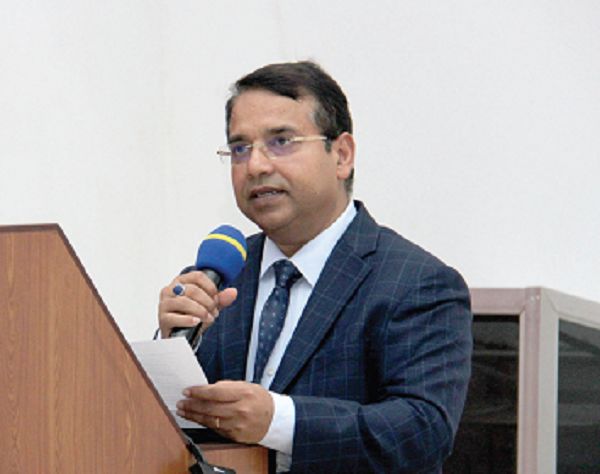
Indian company to produce anti-snake serum locally
An Indian pharmaceutical manufacturing company in Accra, Pharmanova, is establishing a plant to produce anti-snake serum locally.
The initiative is in response to an appeal by the Ghana Health Service (GHS) for help since most of the imported anti-snake serums were sometimes not effective in dealing with venoms of some snakes in the country.
Advertisement
The Chief Executive Officer of Pharmanova, Mr Dhananjay Tripathi, at a national symposium on snake bite management in Accra on Friday, March 1, 2019 said over the years, the company’s engagement with stakeholders in health had identified poor management of snake bites due to lack of adequate and affordable medication, inadequate capacity by healthcare professionals and the public to deal with snake bites as the major obstacle to effective snake bite management.
Mr Tripathi said the gaps in snake bite management in Ghana informed the decision by the company to build the plant which would be completed by the end of the year.
“In the very near future, in collaboration with Vin Biotech and with technical support and advice from the Noguchi Memorial Institute of Medical Research (NMIMR), we will commence the production of anti-snake serum,” he said.
He said the local production of the serum would make it affordable and accessible to improve healthcare delivery.
Symposium
That gap, Mr Tripathi said informed the organisation of the national annual snake bite management symposium in partnership with the Noguchi Memorial Institute of Medical Research (NMIMR).
The symposium was held on the theme: “Snake management in Ghana. It was held in collaboration with Vins Biotech, a Pharmaceutical company.
Participants drawn from across the country included healthcare professionals, academia, researchers, pharmacists, technocrats and students.
It was a platform for participants to learn new trends in snake-bite management, share knowledge and explore case studies.
Mr Tripathi said although snake bites were very deadly, there were many medical interventions and medications that could be used effectively to ensure almost zero fatality for snake-bite cases.
He described snake bites as emergency medical situations that required immediate attention but some of the cases were difficult to handle due to lack of appropriate serums and professional capacity.
Capacity building
The Director of NMIMR underscored the need for such capacity building because it was capable of helping to bridge the snake bite management gap in the country.
“It is a condition that needs to be taken seriously because not only does it have a high fatality rate if not managed well, it is also a major cause of disability,” he said.
A facilitator and critical care specialist, Dr Ashok Ganapathy, who took participants through a presentation on effective ways of managing snake bite, underscored the need for first aid.
He explained the need for immediate transportation of victim to a health facility with the adequate ability in terms of personnel and equipment to treat with urgency.
He said all medical care required, such as clinical assessments and resuscitations, lab investigations, supportive treatment should be done concurrently to save the victim.
He said all other proposed non-medical management for snake bites were myths that could increase fatality.
Writer’s email [email protected]




